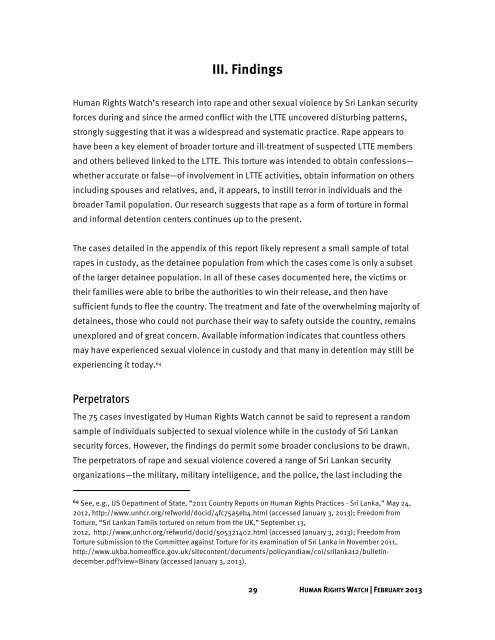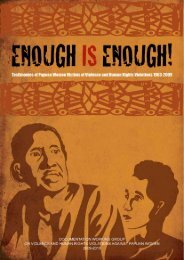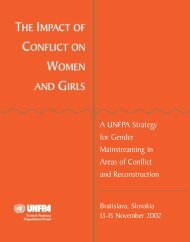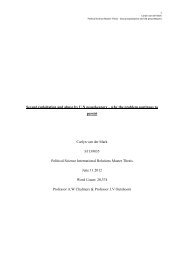Download the full report - Human Rights Watch
Download the full report - Human Rights Watch
Download the full report - Human Rights Watch
Create successful ePaper yourself
Turn your PDF publications into a flip-book with our unique Google optimized e-Paper software.
III. Findings<br />
<strong>Human</strong> <strong>Rights</strong> <strong>Watch</strong>’s research into rape and o<strong>the</strong>r sexual violence by Sri Lankan security<br />
forces during and since <strong>the</strong> armed conflict with <strong>the</strong> LTTE uncovered disturbing patterns,<br />
strongly suggesting that it was a widespread and systematic practice. Rape appears to<br />
have been a key element of broader torture and ill-treatment of suspected LTTE members<br />
and o<strong>the</strong>rs believed linked to <strong>the</strong> LTTE. This torture was intended to obtain confessions—<br />
whe<strong>the</strong>r accurate or false—of involvement in LTTE activities, obtain information on o<strong>the</strong>rs<br />
including spouses and relatives, and, it appears, to instill terror in individuals and <strong>the</strong><br />
broader Tamil population. Our research suggests that rape as a form of torture in formal<br />
and informal detention centers continues up to <strong>the</strong> present.<br />
The cases detailed in <strong>the</strong> appendix of this <strong>report</strong> likely represent a small sample of total<br />
rapes in custody, as <strong>the</strong> detainee population from which <strong>the</strong> cases come is only a subset<br />
of <strong>the</strong> larger detainee population. In all of <strong>the</strong>se cases documented here, <strong>the</strong> victims or<br />
<strong>the</strong>ir families were able to bribe <strong>the</strong> authorities to win <strong>the</strong>ir release, and <strong>the</strong>n have<br />
sufficient funds to flee <strong>the</strong> country. The treatment and fate of <strong>the</strong> overwhelming majority of<br />
detainees, those who could not purchase <strong>the</strong>ir way to safety outside <strong>the</strong> country, remains<br />
unexplored and of great concern. Available information indicates that countless o<strong>the</strong>rs<br />
may have experienced sexual violence in custody and that many in detention may still be<br />
experiencing it today. 64<br />
Perpetrators<br />
The 75 cases investigated by <strong>Human</strong> <strong>Rights</strong> <strong>Watch</strong> cannot be said to represent a random<br />
sample of individuals subjected to sexual violence while in <strong>the</strong> custody of Sri Lankan<br />
security forces. However, <strong>the</strong> findings do permit some broader conclusions to be drawn.<br />
The perpetrators of rape and sexual violence covered a range of Sri Lankan security<br />
organizations—<strong>the</strong> military, military intelligence, and <strong>the</strong> police, <strong>the</strong> last including <strong>the</strong><br />
64<br />
See, e.g., US Department of State, “2011 Country Reports on <strong>Human</strong> <strong>Rights</strong> Practices - Sri Lanka,” May 24,<br />
2012, http://www.unhcr.org/refworld/docid/4fc75a5eb4.html (accessed January 3, 2013); Freedom from<br />
Torture, “Sri Lankan Tamils tortured on return from <strong>the</strong> UK,” September 13,<br />
2012, http://www.unhcr.org/refworld/docid/505321402.html (accessed January 3, 2013); Freedom from<br />
Torture submission to <strong>the</strong> Committee against Torture for its examination of Sri Lanka in November 2011,<br />
http://www.ukba.homeoffice.gov.uk/sitecontent/documents/policyandlaw/coi/srilanka12/bulletindecember.pdf?view=Binary<br />
(accessed January 3, 2013).<br />
29 HUMAN RIGHTS WATCH | FEBRUARY 2013




![IANSA [PDF, 2MB] - PeaceWomen](https://img.yumpu.com/25206379/1/190x123/iansa-pdf-2mb-peacewomen.jpg?quality=85)
![Commitments Sample [PDF, 93KB] - PeaceWomen](https://img.yumpu.com/25206331/1/190x245/commitments-sample-pdf-93kb-peacewomen.jpg?quality=85)










![A Toolkit for Advocacy and Action [PDF, 260KB] - Peace Women](https://img.yumpu.com/25205989/1/190x245/a-toolkit-for-advocacy-and-action-pdf-260kb-peace-women.jpg?quality=85)